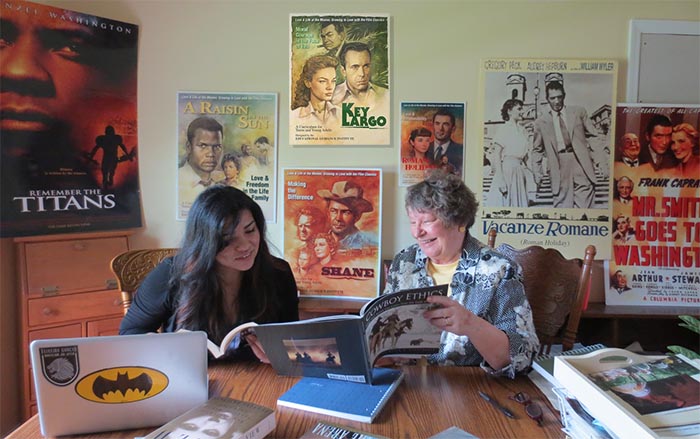Recently, we spoke in-depth with Onalee McGraw, founder of the Educational Guidance Institute, about her work on classic film and education in virtue. As a former researcher on education at the Heritage Foundation and guest on the Phil Donahue Show and Turner Classic Movies, Onalee has seen how classic films from the Golden Age of Hollywood can transform the minds and hearts of high school and college students by helping them contemplate the “large existential questions of life” – relationships, community, civic participation, and more. When we asked her why movies like It’s A Wonderful Life and The Shop Around the Corner are vital for us to see as 21st-century advocates of family, marriage, and sexual integrity, she offered the following response:
“We know that all human beings naturally long for the goods of friendship, community, marriage, and family. But since the philosophy of the autonomous self stands powerfully today against the truth about committed love in marriage and family, we must share stories that model it. We must model it ourselves and especially by showing classic films where the cultural fruits of marriage and family life are apparent, because these are concealed by an industry and culture that claim that we are self-determining autonomous selves rather social beings with the power to love.
For young people today who haven’t experienced the full thriving of normative understandings of community, love, marriage, and family, Hollywood’s Golden Age stands as their greatest recent cultural legacy. No single scene, performer, or film lays full claim to it, but the greatest of them together tells an indisputable story of human nature as it is, along with the stories, myths, fairy tales, novels, dramas, and movies that human beings have made since the beginning of time.”
You can hear more from Onalee on EWTN Catholic television network on July 28th and 29th at 1pm EST, where she spoke about natural law and the impact of the Production Code on classic film. Stay tuned to read our full interview with Onalee, which will be available in next week’s newsletter.







